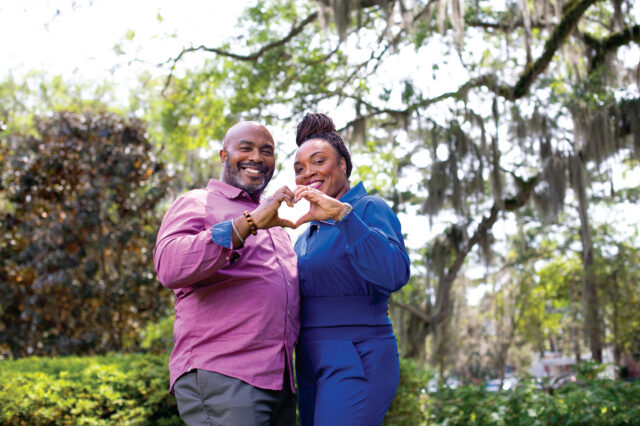In the Syncope & Dizziness Program, which is part of the heart and vascular care medical specialty, we evaluate and treat patients with cardiac-related syncope, dizziness (lightheadedness), heart palpitation and other associated symptoms, including athletes who experience symptoms during or after exercise.
Our clinic is located at UF Health Cardiology – Springhill, which is home to our expertly trained and certified physicians.
What is syncope?
Syncope (passing out) is a transient loss of consciousness with spontaneous recovery, caused by transient reduced blood flow to the brain. Syncope can occur without warning but sometimes is preceded by symptoms such as lightheadedness, nausea, heart palpitations (feelings of fast-beating or pounding heart), tunneled or dark vision, or a feeling of warmth.
Syncope is different than other conditions that can cause loss of consciousness, such as seizure, hypoglycemia and trauma.
What are causes of syncope?
The most common cause of syncope is reflex-mediated, otherwise called neurocardiogenic or vasovagal syncope. Reflex-mediated syncope can occur spontaneously or it may be provoked by specific conditions/activities, such as standing in one place for an extended time, urination, swallowing, coughing, seeing blood, emotional distress, fear or severe pain.
Other causes of syncope include cardiovascular disease due to structural heart disease (e.g. severe aortic stenosis, hypertrophic cardiomyopathy) or arrhythmias (abnormally fast or slow heartbeats). Orthostatic intolerance, commonly caused by hypovolemia and autonomic dysfunction, is also a cause of syncope.
A few precursors to fainting or “passing out” are feeling weak, sweaty or nauseated. You may sense that your vision is constricting (tunnel vision) or noises are fading into the background.
How common is syncope?
Generally speaking, about 3% of men and 3.5% of women will experience syncope during their life. However, the prevalence of syncope differs based on the underlying cause or age.
Is syncope dangerous?
Reflex-mediated syncope does NOT increase your risk of death by itself. However, syncope can lead to serious injuries, including lacerations, head trauma and hip fractures, especially in the elderly. These injuries can significantly impact mobility or cause early death in certain situations.
On the other hand, syncope caused by structural heart disease or arrhythmias increases the risk of early death.
What to expect during your visit?
In the UF Health Syncope & Dizziness Program, a health professional will obtain your medical history and perform a physical examination to evaluate the cause of your symptoms. If a recent electrocardiogram (ECG) to assess heart rhythm is not available, we will perform one.
What tests could be done to diagnose syncope?
The diagnosis of syncope can be challenging. In addition to electrocardiogram (ECG), an echocardiogram (ultrasound of the heart), exercise stress test, tilt table test and blood testing may be required to help determine the cause of syncope.
What are the treatments of syncope?
Given the complex causation of syncope, treatment will be highly dependent on the underlying cause. No treatment is universally effective for all patients.
Who is Dr. Mohammed Ruzieh?
Dr. Ruzieh, director of the Syncope & Dizziness Program, is a cardiologist with special interest in syncope, orthostatic intolerance, sports cardiology and arrhythmias. He completed his cardiology training at Penn State University. He has authored over 80 manuscripts and abstracts as well as numerous book chapters. Dr. Ruzieh has received multiple research and teaching awards throughout his training, and he was chosen as one of the top under 40 physicians in Pennsylvania in 2019.
